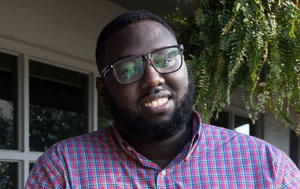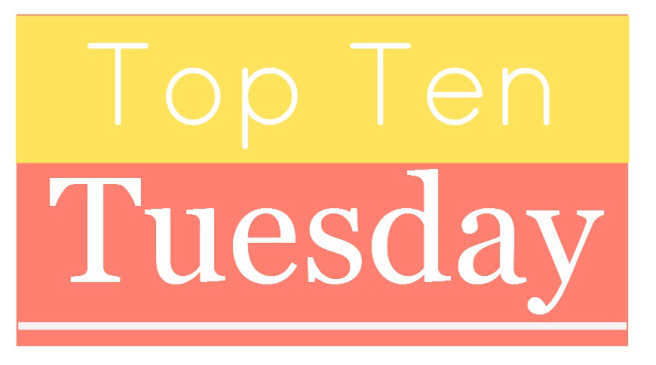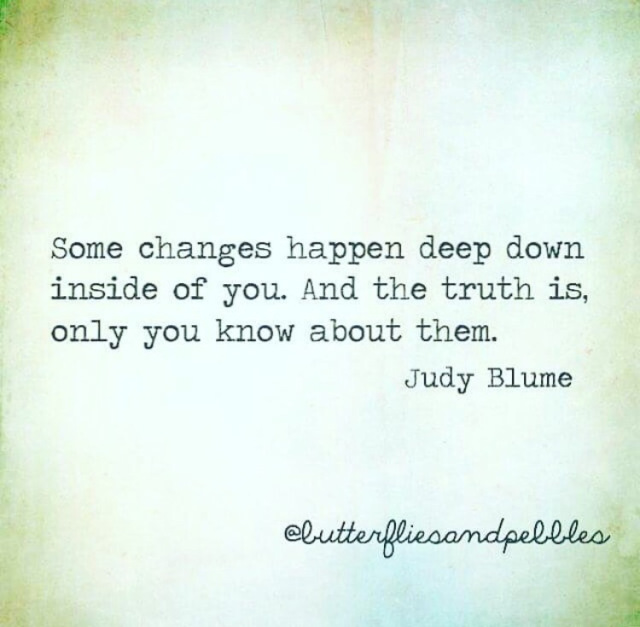
Midwest BSFA recently spoke with Troy Wiggins, co-editor of Fiyah Magazine, about his publication, the “Voices On Fiyah” project and the general brilliance of black speculative fiction writers.
Midwest BSFA: First off, tell us about yourself.
Wiggins: Hello world. I am a writer, editor, and nerd from Memphis, Tenn. My fiction has appeared in several speculative fiction magazines, and I am co-editor of Fiyah Magazine of Black Speculative Fiction. I am currently at work on an untitled novel-length project about black “superheroes.”
I’ve been writing since I was in the third or fourth grade. My first speculative fiction story was called “Night of the Living Dinosaurs,” and I was writing it alongside my childhood best friend. He and I still haven’t quite given up on that book, so don’t be surprised if you see it on bookstore shelves in the future.
Midwest BSFA: How did you get into writing?
Wiggins: I was originally a visual artist, and I would draw pictures for the stories that my friends came up with – normally, these were superhero stories because all of us were into comic books back then. When I started reading fantasy novels in the fourth or fifth grade, I realized that I was invested in telling stories about kids killing dragons and having adventures. From there, I decided to write my own stories and draw the pictures for them. I had notebooks full of fantasy short stories that I carried around with me and scribbled in during my classes.
I eventually majored in creative writing in college, and from there I always kept writing as a part of my life. I facilitated community writing workshops, led writing programs for school age children, and I’ve attempted to be an active blogger, but I don’t think I’ve been as successful at that as I’d like.
Midwest BSFA: When did you discover you wanted to write for a living?
Wiggins: Very recently. I didn’t make the attempt to write “professionally” until I was in graduate school. I have that degree in creative writing, but I also had pragmatic black parents who were like “uh, you need to have a job so you can feed yourself” so I went back to school to get a master’s degree in 2009. While there, I was so inundated with class readings that I found myself gravitating back toward reading speculative fiction. I should mention that I had given up on speculative fiction – particularly fantasy, my first love – during undergraduate school because these worlds centered whiteness as a rule and that was just not the world I lived in. In graduate school, I came across David Anthony Durham’s Acacia and while I was reading it, I thought “hey, here’s a black man writing fantasy with black people in it. I can do that, too!”
From there, I discovered the Black Science Fiction Society online message board, and found ways to submit my writing to magazines. I started a blog where I would talk about my ideas and share my writing (a bad idea). Like I said, this was in 2009. I wasn’t able to sell a short story until 2012 – the year I finished graduate school.
Midwest BSFA: What do you do when you aren’t writing or editing?
Wiggins: I have a pretty demanding day job and a family, so I try to balance all of those responsibilities. Typically, though, when I’m not writing or editing, I’m hanging out with my wife and dogs, or reading for pleasure. My wife and I are gamers, and right now, we’re playing Ki-Khanga, a sword-and-soul tabletop RPG developed by Balogun Ojetade and Milton Davis. I can’t tell you what book I’m reading right now, but it’s really good.
I try to watch TV and play video games, but I fail in the attempt more often than not. Right now, I’m going back to my childhood and watching the latest episodes of Dragon Ball Super. I’m also making my way through the second season of Into the Badlands and the Marvel Netflix shows.
Midwest BSFA: How do you describe your own writing style?
Wiggins: My background is in visual art so my writing tends to be very sensual, very evocative in regard to imagery and place. However, I know that writing like that can be difficult to read, so I try to balance it with economy of language. I am a fan of beautiful writing, but I am also a fan of writing that does the work it was intended to do, so I am attempting to reach a medium in my own work. I think that I am closer to this ideal than I was a few years ago, but I still have a long way to go.
I also center blackness – specifically American blackness – in my work. I try to use speculative fiction to wrestle with both the realities, the histories, and the “what if”s of being black in America. Sometimes this is more pronounced and political, like in my story “Black Like Them” which is about an experimental drug that turns non-black people into black people. Sometimes this is communicated more in the “slice of life” aspects of living as a black person, like in my story “A Score of Roses.” I am committed to doing right by black people in my work, in communicating honestly with them and centering them and their humanity in my writing without pandering to whiteness and white-centered conceptions of black people.
Midwest BSFA: What’s your writing process?
Wiggins: These days, I write in very small pieces. A writing friend of mine, Johann Thorsson, introduced me to a system that is designed to help writers write by making writing a habit for them. So I try to write every day – and sometimes I fail, but writing begins with forgiveness – and I write a very small amount of words every day. Given how many things I have going on, I can only write for one small block of time a day, but I really try and make sure I write at least a small amount per day toward my novel-length project.
This requires me to have everything planned out. I am NOT a pantser, but I am not a meticulous plotter either. Even for my short fiction, I create a quick sketch of the story, and then build the story around those bones. The good thing for me about having a sketch is that my plan isn’t ruined when the story decides to go a different direction from what I’ve sketched out. Sometimes I have banner days where I write thousands of words, but I’m really content with having met my very small word count goal, or finished a particularly trying scene.
Midwest BSFA: If you weren’t a writer, what do you think you’d be doing for a living?
Wiggins: I’m doing it. I work in the nonprofit sector, where my job is to help nonprofit organizations be the best that they can be in order to maximize community impact. I’ve always been rather community minded because my parents were community minded, so I am grateful to say that I actually like my day job in addition to it paying my bills and putting food on my table.
Midwest BSFA: How did Fiyah come to be?
Wiggins: Fiyah was literally born out of a convergence of possibilities. Writing homie Phenderson Djèlí Clark had the initial idea and planted the seeds for a network of black writers organized around perfecting craft and professionalizing themselves. I helped gather black writers to the cause. Fireside Fiction published the #BlackSpecFic Report, confirming what lots of black speculative fiction writers already knew. The idea came around again, and we tinkered with it until, suddenly, Fiyah was born. It would not have happened, I think, if not for all of these things happening at once – black writers with the requisite skills and resources coming together, the frustration in the wake of the #BlackSpecFic report, the idea of a revolutionary black speculative fiction magazine recurring in the wake of that report, all of that together was the impetus.
Midwest BFSA: News recently came out that there are several Fiyah stories on the Nebula Reading list! Congratulations! How does that recognition feel?
Wiggins: I am so excited for our team and for the writers who are eligible. Listen. I’ve always been convinced of the genius of black writers. No one can tell stories like we can. That’s just a fact. And I know that it would take something like a concentrated effort of discrimination to conceal that fact from the world. Now, it’s definitely validating to see that the public at large recognizes our genius, and if one of our stories makes it on the ballot – or wins – I’ll be over the moon. But like I say, we’ve been here, and in greater numbers than just the four or five exemplars that the market tends to let in. It’s beyond time for us to be recognized for our contributions.
Midwest BSFA: What do you think this recognition says about black writers to the larger literary world?
Wiggins: At the risk of sounding like a broken record: we’ve been here. We’ve been writing. Our work is excellent and it deserves to be given the same recognition and weight as the work that is routinely celebrated. But I understand that these systems work exactly as they are intended to work, and what they intend is to marginalize black writers – black people – because that is the modus operandi for every system that has been created by the dominant culture here.
I, personally, fight to make those systems reckon with us and our excellence. But I am also coming around to the view that we don’t always need recognition or validation from the larger community. Don’t get me wrong, it’s good to be recognized and celebrated for your work. But it’s also good to know why you’re creating and who you’re creating for.
Midwest BSFA: What are some of your favorite stories from Fiyah issues and why?
Wiggins: Ah, I don’t want to play favorites. This is a difficult question. I will say that my favorite stories to work on are those that have challenged me to grow as an editor. When I read L.D. Lewis’ “Chesirah,” I immediately said to myself “I have to have this story.” It was so amazing, so lush and powerful. I remember reading Khaalidah Muhammad-Ali’s “Talking to Cancer” in a writing group and saying, “I wish I could publish this story somewhere” and lo and behold, it’s in Fiyah now, one of my favorite stories, brimming with magic. Jenn Brissett’s “Breeze in the Boughs” taught me so much about how to be a responsible editor and what it means to work in service to an author’s vision. That’s a lesson that I will carry with me forever. Xen’s “Cracks” quite literally took my breath away when I encountered it in our submission pile. And both Arnica Ross’ “Riley and Robot” and Melody Gordon’s “Excavate” may or may not have made me shed a tear. I’ll never tell.
Midwest BSFA: Tell us about the “Voices On Fiyah” project. Why did you want to create it? How is it different from National Novel Writing Month?
Wiggins: VoicesOnFiyah is a month-long group sprint in which writers of color work together to reach the 50,000 word mark over the month of November. They can work on their individual projects, no matter the word count, and contribute those words toward a team bank (grouped by subgenre) that the team, and Fiyah, tallies at the end of the month toward a collective word count. This is a cool way for everyone to share in a collective win, rather than feeling bad at the end of November because their life demands kept them from winning the month. A big part of VoicesOnFiyah is the community. Fiyah shares resources, allows team members to provide updates on the difficulties and victories, and brags on writers and teams when they show out.
National Novel Writing Month can be…stressful, and it’s a lot easier to do it with a community that not only shares your values, but also is invested in your success. The entire team at Fiyah is invested in black writers’ success, and we are working to collect a community of black writers who can come together to not only tackle NaNoWriMo, but to tackle the slog that is making a way in publishing in general. Last year, the VoicesOnFiyah teams generated over 370,000 words of fiction. I’m convinced that some of those words are being published somewhere.
Midwest BSFA: Have any advice for black writers who are trying to get published for the first time?
Wiggins: My guiding light is Toni Morrison’s quote: ““If there’s a book that you want to read, but it hasn’t been written yet, then you must write it.” But this means a couple of things for black writers:
- One is that you must be constantly reading and learning the art of writing so that you know both what kinds of stories are out there and which ones work for you–and which ones you absolutely need to be writing in the way you want to write them.
- Two is that you gotta write–in whatever way works for you. But note that this doesn’t mean playing at writing or living the “writer’s life” but actually writing until whatever you are working on is done, and then keep working if you are able.
- Three is that you must always be working to improve your craft. I know that we’re all artists and we’re sensitive about our work, but you should always be trying to make your work better and more true for yourself.
Midwest BSFA: Have any other projects that the Fiyah team is working on that you want to tell out readers about?
Wiggins: We’re doing a subscription drive right now, so please get a subscription for yourself or a friend. We also have something coming out for folks who missed some of last year’s issues, but I’m going to keep everyone in suspense on what that is. Other than that, though, we’re just continuing to publish great fiction and advocating for the right of black speculative fiction writers to exist and live in this community. We have our Black Speculative Fiction Writer Survey going until Nov. 30, and Voices on Fiyah going through the month of November as well.
You can check out more of Troy’s thoughts on his blog, https://afrofantasy.net/.
Advertisements Share this:




